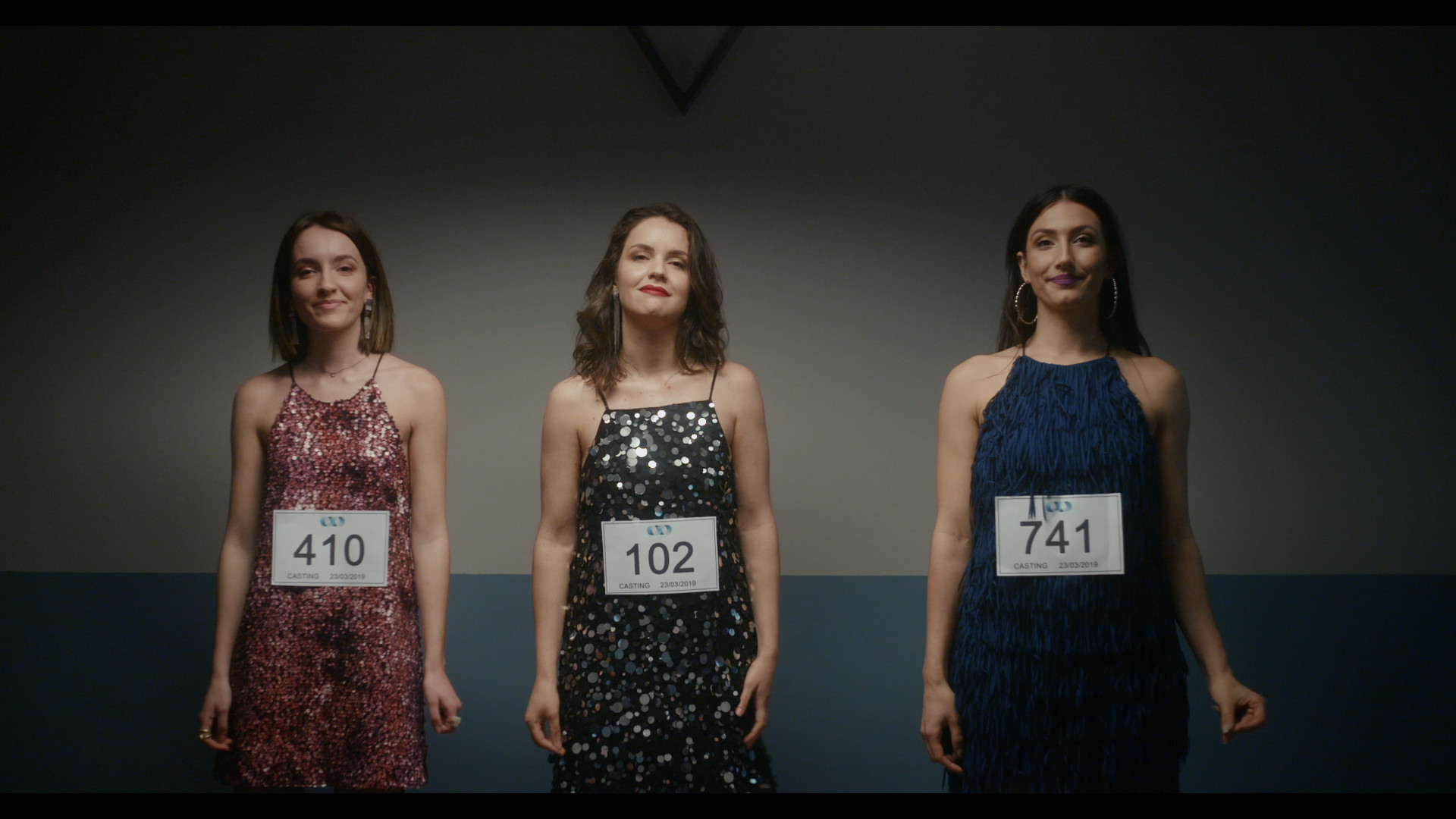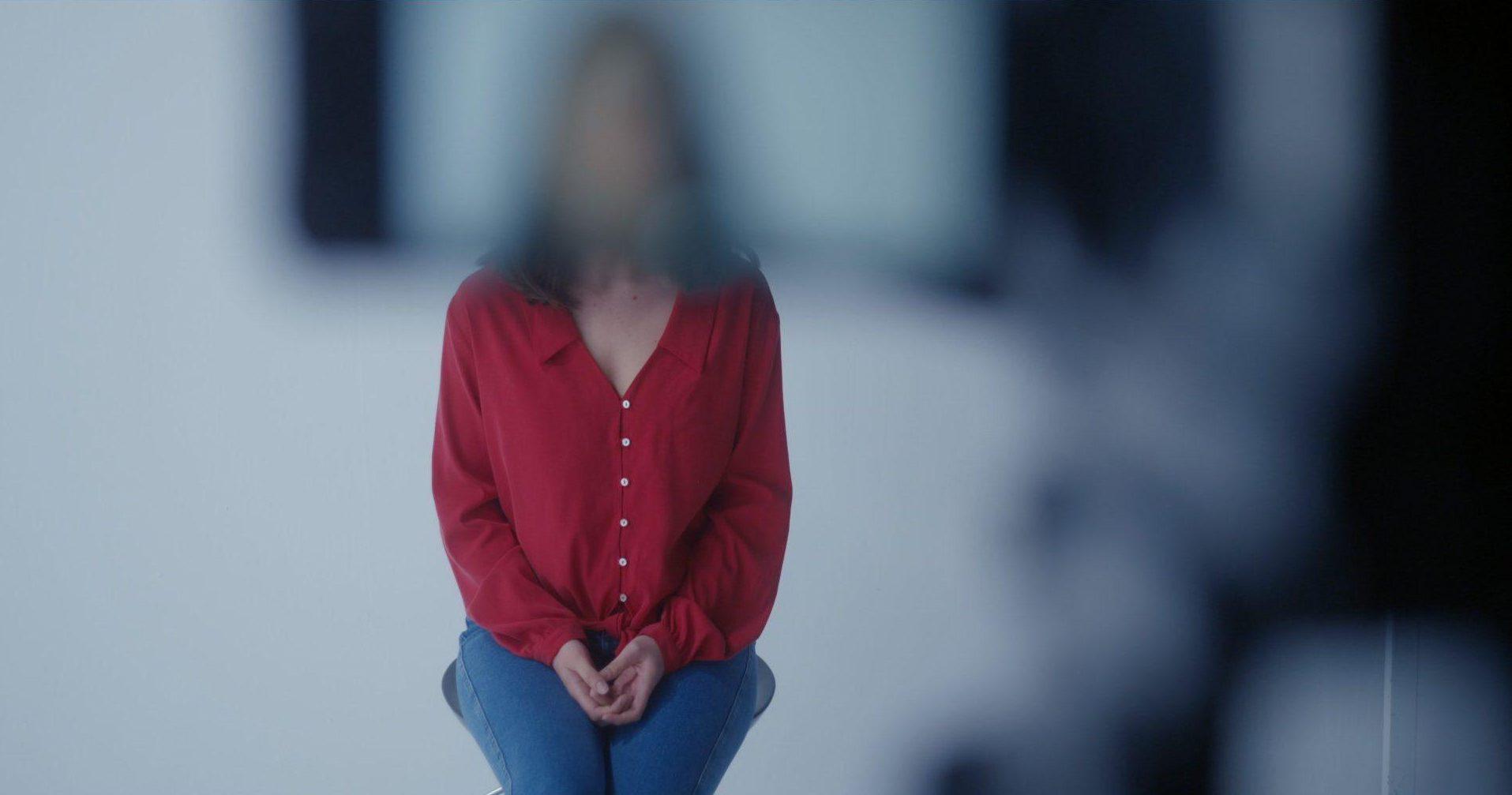
Case Study: Outline
Alejandro Renedo explores the line between comedy and drama
Geplaatst op 11 februari 2021How far does an actress need to go to get the role she wants? With a casting system that can be demanding and cruel, director Alejandro Renedo was interested in exploring the limits. With his short film Outline he finds a balance between comedy and drama.
"Where do you find the line between feeling ridiculous and feeling abused?"
Pain vs. comedy
"Outline is a short film that arose from various conversations with the leading actress, Anai González, about her own experiences in the world of casting. These experiences were very interesting to me. For her, they were memories full of pain and violence, but for me they were very comical experiences almost rubbing the absurdity. This contrast sparked my interest. My need to talk about this subject, in order to make this latent and silent violence in the casting world visible."
"I don't remember when Outline came up, but I do remember that many of my conversations with Anai ended with a: "we have to make a short film about this." These were situations so absurd that they had a special truth. It was reassuring to be able to use those painful experiences."
"Outline is born from the need to talk about limits. Where lies the limit for an actor? Where is the limit in casting? Where do you find the line of violence in casting? And how about the line between feeling ridiculous and feeling abused?"
"This idea about the limit, about the margins, about the dividing lines, was where we started to create the concept of the short film. And where we decided which genre to use."
Balancing ideas for hybrid film
"The short film happens on the borderline between the actor and the casting director, but also on the borderline between success and integrity. Therefore, when choosing the genre, we started from that idea. From balancing between two ideas: we decided to make a hybrid between drama and comedy, and a hybrid between documentary and fiction. With the aim of always staying on the border, between two ideas, on the dividing line."
"The writing process took five months and six script versions. Firstly, I gathered all the experiences that had come out of our conversations and began a process of fictionalization. Later, I created an arc of the character, an internal structure, to place the different sequences that had emerged in a coherent order. The sequences work independently, so it was very important that there was an evolution between them. Not an evolution of history, but how the character feels. It's a path to disintegration, or loss of value."
"I think the most complicated thing during the filming of Outline was deciding where to place the camera, because we had previously decided that each sequence would be filmed in a single shot. That is why we had to find the right place. Not only for the scene to be understood, but also to try to generate a subtext using the image and tell a deeper meaning."

Visualizing the loss of identity
"Recovering the concept of limits, of dividing lines, we wanted to establish a visual language that would be situated on that very dividing line. On on the border between the one who looks and the one who is looked at. Between the one who judges and the one who is judged. Between the actor and the casting director."
"We generated a staging that represents two worlds that never match, through off-field, blurring, voiceovers, etc. On the other hand, we wanted to talk about the loss of identity. Both on the part of the actress and the casting itself. That's why we always tried to fragment the image of the actress, by covering her face, seeing her through a screen, blurring her, etc."
"All these decisions aim to talk about the dehumanization of the castings and of the actress."

Creating an exaggerated sense of realism
"The part I've enjoyed most about filming has certainly been working with the main actress, Anaí. Her ability to adapt to each sequence, her commitment and honesty with her work, was definitely a highlight for me."
"Filming lasted two and a half days, and everything went as planned. I work with a team that fully understands what I want to do. They help me make the result look as close as possible to what's in my head. During filming things change, but in an organic way. When you find problems or failed ideas and look for solutions, the failure can become a good mistake."
"During post production we dedicated ourselves to rewriting the character's arc. We realized that the order of some sequences must be different and that others were interfering in the short film's speech. It is a short film with few plans, but with a lot of montage. Each shot had a very long duration. We trimmed them with a very basic premise: get in late and leave soon."
"Later, we started working on the sound. We didn't want to take off from realism. We wanted to create a somewhat magical and exaggerated realism. We started replacing real sounds with ones that sounded similar, but didn't match the original. We wanted to be at the head of the protagonist character and generate friction between her imagination, her sensations and reality."

Adventure and pride
"We're happy with the result. Over time I always get the feeling that we should have done some things differently, although it gets pretty close to what we wanted to tell."
"As for the distribution, it is working out very nicely. The short film is working and getting many selections, as well as several awards. However, I think the most beautiful thing about this stage is the feedback we get. Especially when an actor, another victim of the casting system, thanks you for the work and is reflected. That means we've done well."
"Finally, I wanted to give a little piece of advice to anyone who wants to pursue this trade: It doesn't matter if your film fails, as long as it's honest."
Fifteen months of post production
"We also wanted to emphasize the fact that the story takes place in Spain and make the viewer experience this world and its atmosphere. The best way to do that was to use flamenco music. We found a flamenco guitarist in the Netherlands who wanted to help us by composing and performing music. The guitarist had no experience with film and it was a difficult process to make music that fitted the edit, without overruling dialogue or important moments that needed silence."
"We were dependent on people who worked for us out of charity and passion, so it was hard to have strong deadlines. If some paid work would turn up for them it would mean our project would be postponed. We worked for almost fifteen months on post production, which sometimes left us feeling hopeless. Would we ever be able to finish the movie? On the other side, it gave us the chance to think a lot about every decision we made. Maybe it was a luxury in disguise?"
"When you take so long finishing a movie however, a lot of stuff gets lost in translation and you have to do a lot of work twice. We wouldn't recommend extending your post production this long. Set hard deadlines for yourself and your crewmembers, and then try to stick to it. After more than two years since we started, the movie is finally finished. And we can proudly say we're quite pleased with the result."
(c) All visual material is used with the filmmaker's permission.
